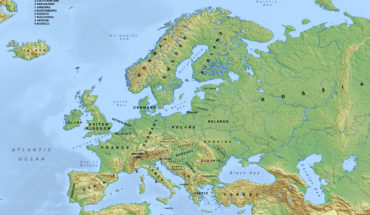With stunning attractions that range from the breathtaking Plaza de Cibeles to the bustling Gran Via stretch of shops and restaurants, it’s easy to find a compelling reason to visit Madrid. As with any foreign country, visitors from abroad are likely to find customs and culture that they’re unfamiliar with. Prepare yourself for your visit by planning for these distinct aspects of Madrid.
Plan for a Late Evening
The evenings in Madrid begin late and continue well into the night. Many restaurants don’t open for dinner service until 9:00 P.M. and diners consider 10:00 P.M. a perfectly reasonable time for a meal. If you’re wondering where they get the energy, keep in mind that many locations still shut down in the afternoon as everyone enjoys a siesta. Expect some shops to close from about 2:00 P.M. to 5:00 P.M. in observance of this custom. The typical lunch time falls in this period, with diners typically enjoying their midday meal around 2:30.
Evenings in Madrid often feel like a special celebration with dancing, dining, and drinking till dawn. While casual attire is usually fine during the day, you’ll find that many people dress more formally at night. If you want an excuse to put on your best and get dressed up, an evening in Madrid is reason enough to look special. End your late evening like a local with an order of chocolate con churros.
Disregard Your Personal Bubble
Americans typically retain a bit of a personal bubble around themselves. They stay a respectable distance from one another, particularly in dealings with strangers. Spain is very different, so you may need to adjust your comfort level. Expect Spaniards to stand very close when speaking to you. Even on the street, you will probably find others standing a bit closer than you’re used to.
A kiss on each cheek is a customary greeting, even when you’re meeting someone new. Spaniards are typically warm and friendly and may perceive you as being far colder than you intend if you keep too much distance or avoid these friendly embraces. Public displays of affection are very common. If you’re on a romantic getaway, feel free to kiss and cuddle in the streets. You certainly won’t be the only ones.
Be Wary of the Smoking Laws
Smoking in Madrid was once very common, but new laws went into effect in 2011 which tightened the restrictions on smoking. If you haven’t been to Spain recently, you may be surprised to find diners no longer lighting up between meal courses. Smoking in Madrid is now banned in enclosed public spaces including restaurants, bars, and cafés. Smoking is also prohibited in outdoor areas that provide access to a hospital, school, or playground. Some hotels, like the Hotel Gran Versalles, still provide smoking rooms, though they may not reserve more than 30 percent of their rooms for smokers.
Know How to Tip
Tipping is less common in Spain than it is in North America, but major tourist destinations like Madrid are certainly familiar with the practice. In most cases, a tip is not expected. Customers who choose to leave a tip do so to award exceptional service that goes well beyond what was expected. When you do tip, keep in mind that the percentage is much lower in Madrid. A generous tip for a meal is between 5 and 10 percent. Many restaurants include a gratuity, so look at your bill before adding your own tip.
You may tip up to ten percent for a taxi, but do not tip more for loading and unloading bags as taxi drivers generally add their own fee for this service. You may tip a single euro for services from someone like your hotel bellhop or the seating staff at a theater. Tip housekeepers at your hotel between two and five euros per day. You may leave this daily or at the conclusion of your stay. There is no tipping at pubs and discotheques, and you do not tip tour guides.
Pack Your Purse Carefully
Thanks to the size and popularity of Madrid, credit cards are widely accepted, and ATMs are usually easy to find. Cheap hotels in Madrid abound, so you can stretch a small budget a long way. You may want to contact your card issuer before your departure to let them know when you will be in Spain. Some credit card companies flag your card for potential fraud when unexpected charges show up overseas. Some cards do charge an additional fee for overseas transactions so this is something you should consider as you plan your purchases prior to departure.
You will need identification when paying with a credit card, so keep your passport or another form of photo identification on hand for this. It’s always smart to keep a little cash in case you find yourself in a small boutique that doesn’t take credit cards. You may also run into some issues paying with a credit card for small purchases of just five or ten euros. Single euros are also handy for tipping.
Protect Yourself from Street Crime
Madrid is generally a safe destination, but street crime does occur and is primarily targeted at tourists. Keep an eye on your baggage at all times, particularly when checking in to your hotel or waiting for your flight from Madrid. Pickpockets are the biggest threat in regards to street crime in the city.
Be wary of anyone who approaches and attempts to distract you. They may do this by dropping items on the ground or asking a lot of questions. Some pickpockets pose as plain clothes law enforcement and ask to see identification while an accomplice takes advantage of your distraction. Don’t trust anyone claiming to be law enforcement in Madrid who is not in a uniform.
Madrid is a vibrant city with everything from peaceful gardens to a bustling nightlife. Plan right and you can enjoy an unforgettable escape to this Spanish city. Share your tips for fitting in overseas in Madrid using the comments below.
Author Bio:
Mandi Rogier lives and writes in sunny central Florida. She spends her free time bustling about theme parks or relaxing on beaches. She writes travel pieces for several websites including Hipmunk.


